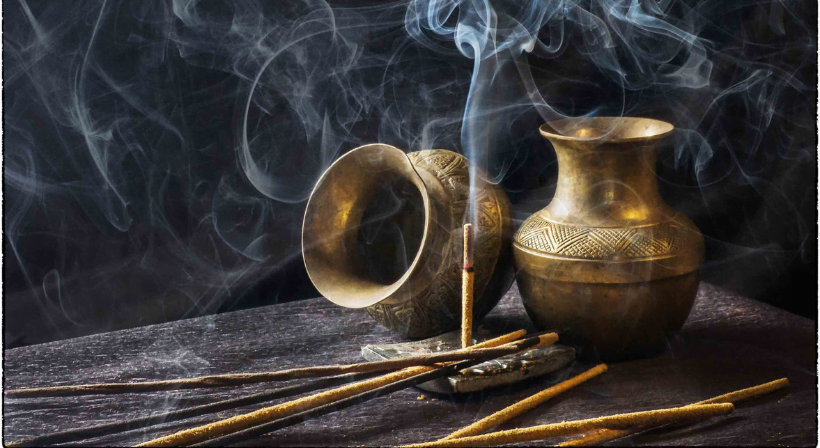What are Upanishads? Exploring Ancient Vedic Wisdom
The Upanishads are ancient Hindu scriptures that contain the philosophical teachings of the Vedas, the oldest and most sacred texts of Hinduism. The Upanishads explore the nature of reality, the self, and the relationship between the individual and the supreme reality, called Brahman. The Upanishads are also known as Vedanta, which means “the end of the Vedas”, because they represent the culmination and essence of the Vedic wisdom.
The word Veda means “knowledge” and the four Vedas are believed to contain the essential knowledge of the universe and how an individual is to live in it. The term Upanishads means to “sit down closely” as if drawing near to listen to some important instruction. The Vedas provide the broad strokes of how the universe works and how one is to respond; the Upanishads then give instruction on the specifics of an individual’s response. The Upanishads are considered to be the source of inspiration and guidance for many schools of Hindu philosophy, such as Advaita Vedanta, Yoga and Samkhya.
The Upanishads are not a single book, but a collection of texts written by different authors over a period of several centuries, from around 800 BCE to 500 BCE. There are more than 200 Upanishads, but only 13 are considered to be the principal or classical Upanishads. These are: Isa, Kena, Katha, Prasna, Mundaka, Mandukya, Taittiriya, Aitareya, Chandogya, Brihadaranyaka, Kaushitaki, Svetasvatara and Maitri.
The Upanishads are written in a poetic and symbolic language that often uses metaphors, analogies and stories to convey complex ideas. The Upanishads are not systematic or dogmatic, but rather invite the reader to question, reflect and meditate on the ultimate truth. The Upanishads are regarded as one of the most profound and influential works of world literature.
The main theme of the Upanishads is the concept of Brahman, the supreme reality that is the source and essence of everything that exists. Brahman is described as infinite, eternal, unchanging, self-luminous, blissful and beyond all attributes and categories. Brahman is both transcendent and immanent, meaning that it is beyond space and time but also present in every atom and being. Brahman is also identified with Atman, the true self or soul of every individual. Atman is not the same as the ego or personality, which are products of ignorance and illusion. Atman is the innermost core of one’s being, which is identical with Brahman.
The goal of human life, according to the Upanishads, is to realize one’s true nature as Atman-Brahman and attain liberation from the cycle of birth and death (samsara), which is caused by ignorance (avidya) and desire (kama). Ignorance makes one identify with one’s body and mind instead of one’s true self. Desire makes one attached to worldly objects and pleasures instead of seeking eternal bliss. These two factors create karma, which is the law of cause and effect that determines one’s destiny in this life and future lives.
The way to overcome ignorance and desire is through knowledge (jnana) and detachment (vairagya). Knowledge is not merely intellectual or rational, but intuitive and experiential. It is gained by listening to the teachings of a guru (spiritual teacher), reflecting on them with reason and logic, and meditating on them with concentration and devotion. Detachment is not indifference or renunciation, but a state of mind that is free from attachment and aversion. It is cultivated by practicing ethical conduct (dharma), self-control (yama), discipline (niyama), physical postures (asana), breath control (pranayama), sensory withdrawal (pratyahara), concentration (dharana), meditation (dhyana) and absorption (samadhi).
The Upanishads teach that when one attains knowledge and detachment, one realizes one’s identity with Brahman and becomes free from all bondage and suffering. This state of liberation (moksha) is not a place or a time, but a state of being that is beyond all duality and distinction. It is described as peace (shanti), joy (ananda), love (prema) and wisdom (prajna). It is also said that those who attain liberation become one with Brahman and help others to achieve the same goal.
The Upanishads are a treasure trove of spiritual wisdom that have inspired generations of seekers from various backgrounds and traditions. They offer a vision of reality that is both sublime and practical, both transcendent and immanent, both universal and personal. They invite us to discover our true self and our true purpose in life. They challenge us to go beyond the limitations of our mind and senses and experience the infinite and eternal. They guide us to the ultimate truth that is Brahman.

